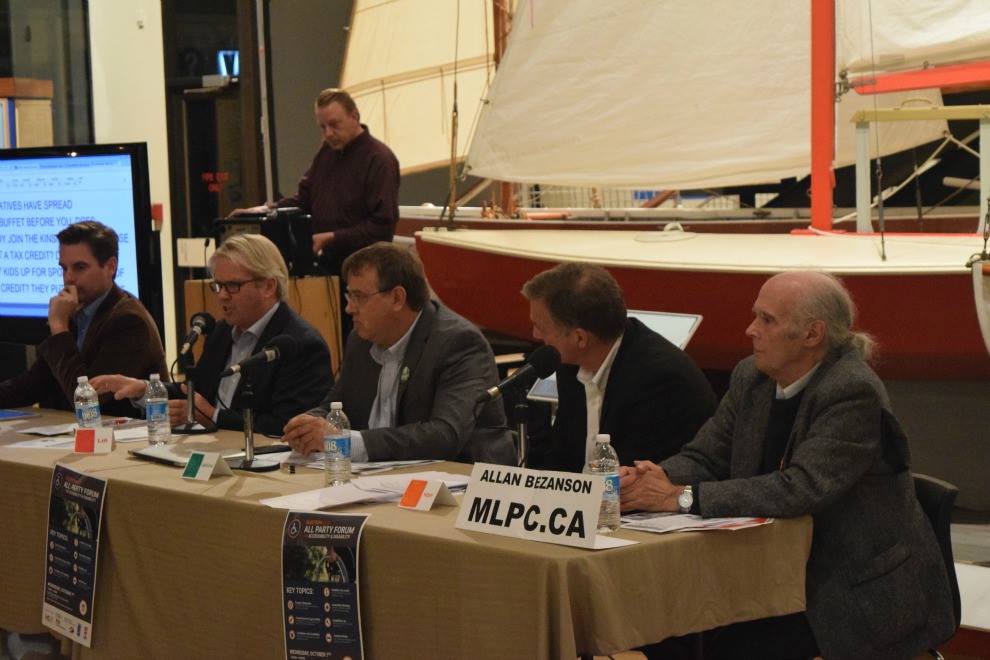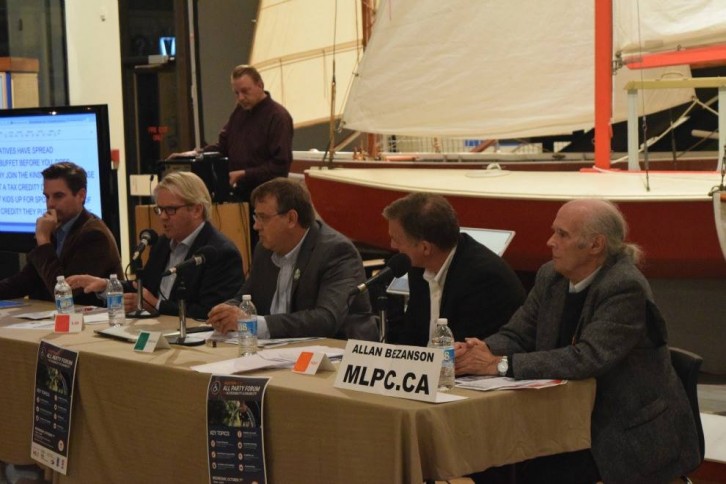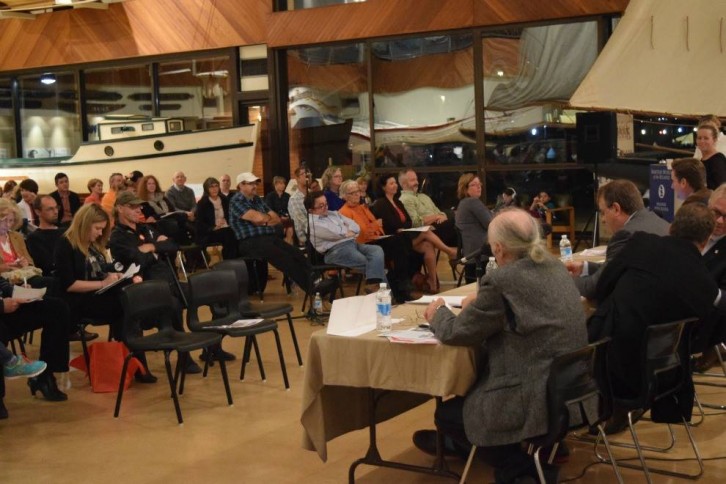Federal election
Candidates promise help for the disabled
Federal election candidates pledge housing, employment help in debate focused on disability issues.

caption
Candidates share their views at the Maritime Museum of the Atlantic
caption
Candidates share their views at the Maritime Museum of the AtlanticCandidates at a debate on accessibility issues Wednesday highlighted their parties’ promises on housing and pledged to help more disabled people get back into the workforce.
“We need to get disabled people back into the workplace so they can start contributing to the community,” said Thomas Trappenberg, a Green Party candidate.
The accessibility debate was held on Wednesday night at the Maritime Museum of the Atlantic to hear concerns from the community members who are challenged with a disability. Freelance journalist Maggie Rahr moderated the event and around 30 people attended the debate.

caption
About 30 people attended the debate on disability issuesThe main issues that were brought up included accessible housing and unemployment.
The candidates who participated in the debate included:
- Robert Chisholm, representing the New Democratic Party in the federal riding of Dartmouth-Cole Harbour
- Jason Cole, representing the Conservative Party in Dartmouth-Cole Harbour
- Rodger Cuzner, representing the Liberal Party in Cape Breton-Canso
- Thomas Trappenberg, representing the Green Party in the riding of Halifax
- Alan Bezanson, representing the Marxist-Leninist Party in Halifax
Accessible housing:
At the debate, all of the candidates said that everyone should have accessible housing and agreed that something has to change.
- Chisholm stated the NDP would invest $2.7 billion once elected into housing to have it more accessible for people with disabilities. They would also support a national housing strategy and make housing more accessible.
- Cuzner said the Liberals would invest $20 billion into social infrastructure, including affordable housing, over 10 year
- The Marxist-Leninist and Green Party both agreed that people should not be paying more to have an accessible house.
“Many houses do not have ramps and if someone needed a ramp to access their house they would have to pay for it from their back pocket — and it shouldn’t be this way,” said Bezanson.
Unemployment
The candidates stated a lot of people with disabilities are unable to maintain a steady job. Due to this, they are unable to:
- Have the right accessibility they need for their disability
- Are unable to pay for both prescription drugs and bills
- Have a hard time paying bills and are unable to pay taxes
- Can end up in poverty and become homeless
- Have a harder time contributing to the community
“Some people have to decide themselves whether to fill their prescription or pay their bills,” said Cuzner.
Cole stated the federal government needs to take action and to start training employers about disabilities.
“Everyone is valuable. Everyone wants to be included in their community,” said Cole. “We need training to get people that have a disability out there into the workplace.”
The candidates all agreed on one thing: they need to make the workplace more accessible for those who have disabilities so more of them can become active members of our community.
The candidates said their parties have people vying for office who have disabilities themselves.
Trappenberg stated the Green Party currently has three candidates that live with a disability and Chisholm said the NDP has five people that have a disability — but others candidates have likely not identified other disabilities.
“It’s more difficult for someone who has a disability to be involved in politics,” said Trappenberg.

